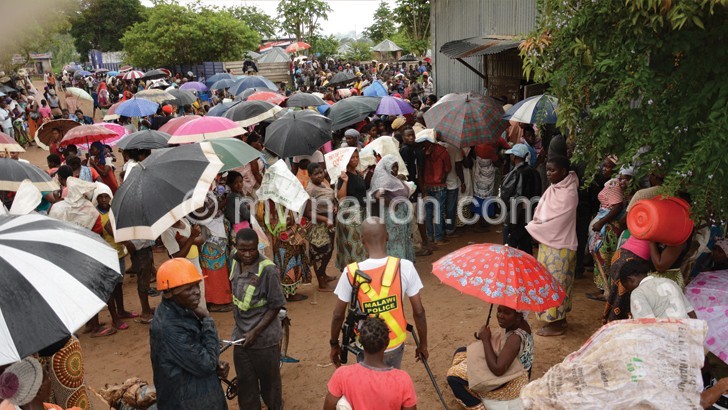Admarc to buy maize April
Admarc will this year start buying maize from farmers in April, about three months earlier than it has done in the past harvest seasons, the State produce trader chief executive officer Felix Jumbe said on Monday.
Agriculture experts have since commended the move, saying it will stop exploitation by middlemen who buy from farmers at low prices soon after harvest. Admarc was coming in during the lean months between August and November.

Jumbe said about K9 billion is available to buy the staple before the next budget.
“We plan to start buying the maize soon after harvest next month to ensure farmers avoid what happened last year,” he said.
On the price they will be buying the commodity, Jumbe said it would be set after the Ministry of Agriculture, Irrigation and Water Development releases the minimum farm gate price.
Last year, government set the price of maize at K150 per kilogramme but started buying the grain much later in August, which proved to be too late as private traders had swept all the maize from farmers and were, at the time, offering it between K180 and K250 per kilogramme, forcing farmers to opt for traders.
When presenting the Mid-Year Budget Review last month, former minister of Finance, Economic Planning and Development Joseph Mwanamvekha said government would top up K2.2 billion for the purchase of maize on the K7 billion that was still available from the 2019-20 Budget.
He said: “We want to reinforce Admarc’s role of buying from farmers once the harvest so that they middlemen do not exploit them. We will be buying as the crops are ready and how farmers are harvesting. We will prioritise farmers who sell in groups and cooperatives to avoid farmers’ standard of selling in piecemeal.”
The ministry has not yet set the farm gate prices, and Farmers’ Union of Malawi (FUM) president Felix Njolomole said he hoped Admarc would continue buying at around K300 per kilogramme.
He said: “There is no better time to buy maize than when farmers have just harvested. Although government set the minimum price at K150 during the last season, it has been around K300 per kilogramme during the past few months and we should hope for more or less the same.”
Meanwhile, Grain Traders Association of Malawi president Grace Mhango has said given the current market forces, where the price of maize is hovering around K200 and K220 per kilogramme, the price for Admarc should be within that range.
“I support the opening of the markets early since we have plenty of maize this year. It is clear that with some traders still having last year’s maize, our neighbours may come in and buy the grain at cheaper prices. I hope [government] will be able to store the grain until the next growing season,” she said.
According to the First Round of Agricultural Production Survey, there is an estimated 8.8 percent increase in maize production from 3 393 924 metric tonnes in the 2018/2019 growing season to 3 691 866 in the 2019/2020 season.
While welcoming Admarc’s early buying of the staple, Civil Society Agriculture Network (CisaNet) executive director Pamela Kuwali said it was important for the corporation to buy from farmers at competitive prices.
She said: “The move is commendable, however, we continue to appeal for a complete reform of Admarc as outlined in the corporation’s functional review that was conducted in 2018 to ensure it effectively performs its functions and reduce market distortions.”
Kuwali called for accountability and transparency in the procurement of maize from farmers to enable farmers benefit from the opportunity.
Due to underperformance, Admarc, has depended on government bailouts.
In 2017, government released K23 billion while in 2018, taxpayers paid up K45 billion to bail out Admarc.
Speaking last week in Blantyre, Admarc board member Imran Shareef said sealing loopholes in the company’s audit system would prevent its non-performance.





